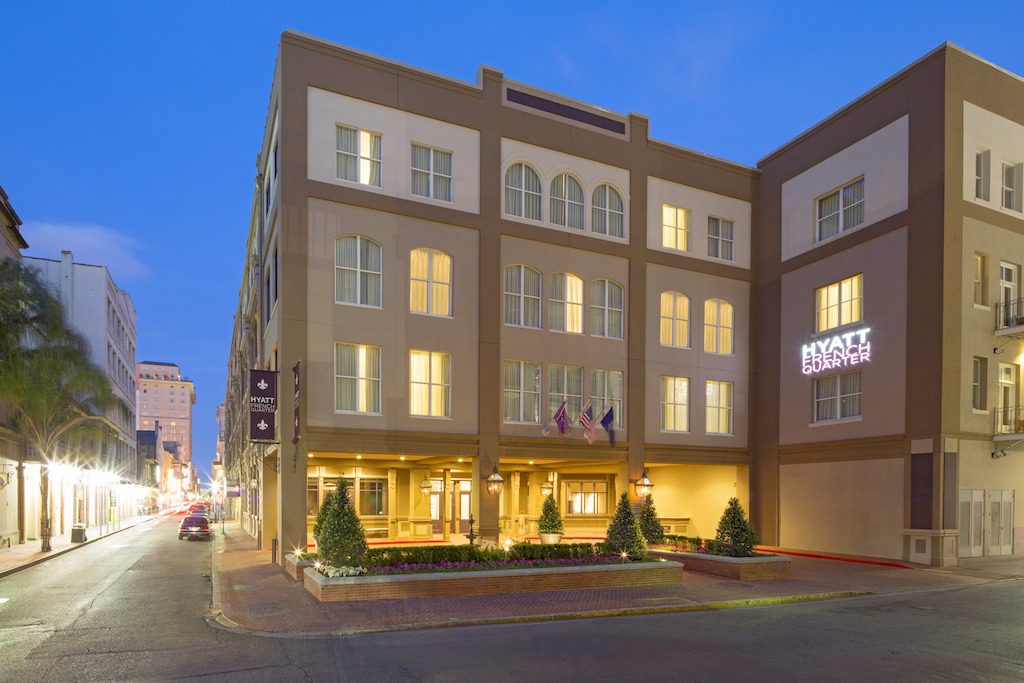Hyatt CEO Says Second Wave of Virus Will Curtail Hotel Industry’s Ongoing Recovery

Skift Take
Booking data may show the hotel industry continues to steadily improve from record low demand levels seen in early April. But Hyatt CEO Mark Hoplamazian is worried about the rest of the year.
The hotel industry has kept an optimistic tone this earnings season with respect to coronavirus case surges around the world. Hilton CEO Chris Nassetta, while mentioning the second wave, didn’t sound any alarms during his company’s earnings call earlier this week, nor did Choice Hotels CEO Patrick Pacious earlier Thursday. Both executives pointed to positive monthly occupancy trends for their reasoning.
But Hoplamazian cautioned data isn’t telling the full story when it comes to the hotel industry’s prospects heading into winter.
“If all I did was look at the data that we’ve realized to date, we’d have no caution in our tone, but that’s not really helpful,” he said Thursday during an investor call. “Unless you’re asleep, you’d see the case loads are increasing daily to new records in a large number of U.S. states and in Europe. We’re just anticipating that progression which is upon us … This is taking hold and will continue to be an issue for the near-term.”
Hoplamazian has more reason to be concerned than the other hotel executives: Hyatt posted a $161 million third quarter loss compared to Hilton’s $81 million loss. Choice Hotels even saw a $14.5 million profit for the quarter.
But the Hyatt executive’s frank outlook appeared more to do with general macro-trends in the hotel industry than some of his competitors. Hoplamazian indicated he doesn’t expect a demand switch to suddenly flip with a vaccine and that a material group business and business transient travel recovery isn’t likely until the second half of 2021, based on conversations had with Hyatt’s corporate and event clients.
A new wave of travel restrictions stemming from the European case spike and general unease with record-setting cases in the U.S. also hinders near-term outlook, despite positive occupancy trends seen since July. The travel restrictions could result in flat or reduced fourth quarter demand, Hoplamazian said.
“All I can tell you is that based on what we are seeing in terms of the virus progression, we have to anticipate it’s going to impact demand in some way, shape, or form,” he added. “Have we seen evidence of that so far? No. Are we anticipating that we should? Yes.”
Charting an Uncertain Recovery
Hyatt’s third quarter loss was still a significant improvement from the company’s $236 million loss seen in the second quarter. But there is still a long way to go to get back to 2019 performance levels across the entire company. Hyatt’s system-wide revenue per available room — the hotel industry’s key performance metric — was down 72 percent.
Roughly 84 percent of Hyatt’s select service hotels had occupancy rates over 30 percent, which Joan Bottarini — Hyatt’s chief financial officer — says is the financial breakeven point for that market segment. Thirty-two percent of Hyatt’s full-service hotels saw third quarter occupancy rates eclipse 40 percent, the breakeven point for that market segment.
But predicting a recovery timeline remains nearly impossible for the industry.
“Whenever I get this question, I continue to reiterate how low visibility is,” Bottarini said. “We’re measuring booking windows by days.”
There are also mixed signals from some of Hyatt’s corporate clients. Leaders of smaller companies indicated they would get back to business travel as soon as they were allowed back into their offices. Larger clients, like professional services and consulting firms, aren’t likely to return to business travel until the second half of 2021, Hoplamazian said.
“Any prognostication or prediction about what is going to apply to late next year into 2022 is super unreliable,” he added.
The China Experience
Mainland China remains the brightest spot in Hyatt’s portfolio. The company’s hotels there are back to pre-pandemic occupancy levels, driven mainly by domestic leisure travel but even the business-transient and group business sectors are reviving.
The Golden Week national holiday was a particular win for performance, as Hyatt’s revenue per room increased 17 percent since 2019. There was also a 35 percent increase in food and beverage spending at Hyatt’s Mainland China portfolio during the holiday, Hoplamazian said.
Mainland China hotel group business activity continues to stem from product launches for car manufacturers and luxury goods.
“We view the China experience as an example of the strong desire people have to travel and gather and the type of demand that you might expect to see elsewhere once travel restrictions lift and fear around the virus ceases to be such a limiting factor to travel,” Hoplamazian said.




